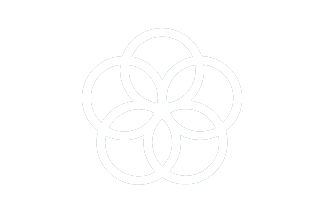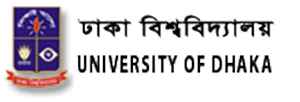Sustainable Development Goals

SDG 17: Partnerships for the Goals
SDG 17: Partnerships for the Goals
The University of Dhaka works towards this by building collaborations with various international organizations, research institutions, governmental and local NGOs. These partnerships facilitate shared research, resource mobilization, capacity building, and the dissemination of knowledge to address global and local sustainability challenges. Through such initiatives, the university contributes to creating a more connected and cooperative approach to solving global challenges, ensuring that efforts towards achieving the SDGs are inclusive and impactful.
Shaping Future Leaders
- Global Academic Exchange: Partnerships with institutions like the University of Melbourne, Tokyo University of Foreign Studies, and Yokohama National University facilitate faculty and student exchanges, enhancing education in languages, cultural understanding, and advanced technology.
- Skill Development: Collaborations with organizations such as the Department of Information and Communication Technology (DoICT) and KOICA promote IT and language education, empowering students with advanced skills in technology and global languages.
- Inclusive Education: The Gender and Inclusive Pedagogical Approaches project integrates teacher training programs across multiple countries, improving inclusive teaching practices.
- Joint PhD programs with institutions like Queensland University of Technology (QUT) enhance academic capacity through international research exchanges.
- Cultural and Language Programs: The establishment of language and cultural exchange programs through agreements with the Indian Council for Cultural Relations (ICCR), KOICA, and Yunnan Arts University fosters intercultural understanding and education.
- Grants and infrastructure support from entities like the Embassy of Japan in Bangladesh enhance teaching environments for Japanese and Korean languages
- The Dhaka International Conference on Fine Art (DICOFA) and collaborations in fine arts with Khulna University and Yunnan Arts University promote global exchanges in creative fields.
Innovative Solutions for Tomorrow
- Global Academic Exchange: Partnerships with institutions like the University of Melbourne, Tokyo University of Foreign Studies, and Yokohama National University facilitate faculty and student exchanges, enhancing education in languages, cultural understanding, and advanced technology.
- Skill Development: Collaborations with organizations such as the Department of Information and Communication Technology (DoICT) and KOICA promote IT and language education, empowering students with advanced skills in technology and global languages.
- Inclusive Education: The Gender and Inclusive Pedagogical Approaches project integrates teacher training programs across multiple countries, improving inclusive teaching practices.
- Joint PhD programs with institutions like Queensland University of Technology (QUT) enhance academic capacity through international research exchanges.
- Cultural and Language Programs: The establishment of language and cultural exchange programs through agreements with the Indian Council for Cultural Relations (ICCR), KOICA, and Yunnan Arts University fosters intercultural understanding and education.
- Grants and infrastructure support from entities like the Embassy of Japan in Bangladesh enhance teaching environments for Japanese and Korean languages
- The Dhaka International Conference on Fine Art (DICOFA) and collaborations in fine arts with Khulna University and Yunnan Arts University promote global exchanges in creative fields.
Sustainable Campus and Practices
- Sustainability Leadership: Collaborations with APRACA and GIZ work toward creating inclusive green finance ecosystems and improving labor conditions. showcasing Dhaka University’s role as a sustainability steward. It also partners with Kyoto University on disaster prevention and climate resilience.
- Policy Advocacy: Partnerships with the Health Economics Unit of Bangladesh’s Ministry of Health support capacity building and policy development for improved public health outcomes.
- Resilience Building: Disaster management curricula and resilience-focused research with institutions like Tata Institute of Social Sciences integrate stewardship principles to address risks from climate change and crises.
- Partnerships with UNICEF, BRAC, and ICDDR, B focus on child welfare, migrant mental health, and frontline worker support. The Department of Clinical Psychology, University of Dhaka, collaborated with UNICEF Bangladesh and the Department of Social Services (DSS) under the Ministry of Social Welfare through the “Child Sensitive Social Protection in Bangladesh Project (Phase II)” to enhance child welfare and psychosocial support for underprivileged children, aiming to reduce poverty and attain its SDG 1 goals.
- Gender and Inclusion Initiatives: Projects with organizations like Self Employed Women’s Association (SEWA Bharat) and Tata Institute of Social Sciences address gender equity, inclusive disaster risk management, and women’s workforce resilience post-crisis. The “Gender and Inclusive Pedagogical Approaches” project, spanning several countries, supports teachers in fostering gender-responsive and inclusive educational practices.
Empowering Communities for Change
- Empowering Local Communities: Initiatives such as the Ashshash Phase II project with Winrock International enhance counselor capacity to support trafficking survivors, directly impacting vulnerable populations.
- Youth and Climate Research: Partnerships with Asia-Pacific Rural and Agricultural Credit Association (APRACA) and VSO Bangladesh focus on climate adaptation, mitigation, and empowering youth in the face of climate vulnerabilities
- Cultural Outreach: Establishing language centers (e.g., Korean Language Center with KOICA, Japanese Program with the Japanese Embassy) strengthens cultural ties and promotes language learning for broader community access.
- Cultural and Social Development: MoUs with institutions like the Indian Council for Cultural Relations and Yunnan Arts University emphasize cultural exchange through art, language, and design. Projects like the Gender and Inclusive Pedagogical Approaches and partnerships with SEWA Bharat focus on inclusivity and empowerment of women.
Through these partnerships, the University of Dhaka demonstrates how collaborative frameworks can achieve a multiplier effect, aligning resources, expertise, and actions toward sustainable global development. This strategic collaboration enhances the its role as a hub for knowledge exchange, innovation and a leader in addressing multifaceted challenges associated with the SDGs and building sustainable and equitable global networks.

